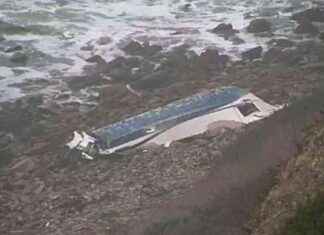Boris Johnson will announce this week the decarbonization of the British electrical system at 2035, thanks especially to the marine wind energy, which will quadruple in ten years the installed power.
The United Kingdom adds to the commitments already announced by the United States and Canada, in the anteroom of the Glasgow COP26 to be held in November.
The Premier will confirm the new boost to the renewables in your Wednesday speech at the Conservative Party Conference in Manchester, in which it will also make a concession to nuclear energy, despite delays and reserves for the use of Chinese technology in the
Unique central currently under construction west of England, at Hinkley Point.
Today, 43% of electricity in the British Islands comes from renewable sources, compared to 40% of gas, oil or coal and 17% of the seven nuclear power plants still active.
The announcement aspires to overcome the reluctance in their own party to wind energy, denyed in their day by Johnson himself as “unable to take off his crust at a rice with milk.”
The “Premier” has become the last two years firmly driving the projects that have put the UK to the world’s head in the sea.
The ambition of him now is to move from the 10 power gigawatts installed at 40 at the end of the decade and supply the 19 million British households with the wind.
Attacks against the strong wind bet of the British Government have reed in recent months due to the underground regime during the summer, in full rise in gas, which has forced to ultimately use the coal thermal power plants practically in disuse
.
Government sources declared The Times that Johnson will not allow the energy crisis to slow down the electrical sector.
“If something has served this crisis it has been to demonstrate that we can not depend on the unreliable global supply of gas,” the same sources argued.
“It is about long-term protecting consumers and being less expeustous to the fluctuations of the gas market”.
Johnson himself has anticipated the London newspaper his determination to “cope with the cost of energy by increasing the capacity for the generation of clean energies”.
At least eight large sea wind projects are currently underway, with the aim of reaching the 60 gigavatios of power at the beginning of the next decade.
Despite the criticisms of the high costs and security problems of the Central currently under construction at Hickney Point, the Johnson government studies to give the approval to two other nuclear plants, with a possible announcement in the presentation of the next budget, on 27
October.
The British Government has increased its aim of reduction of missions at 68% by 2030 and 78% in 2035, with the goal of achieving carbon neutrality in 2050. Ecologists have not warned however “bump”
Notable between the objectives and actions, such as the continuity of oil surveys in the North Sea and the project of a coal mine in Cumbria.





